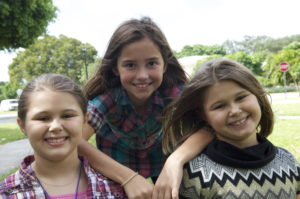by Dr. Tanginika Cuascud for Mamiverse
In my native Puerto Rico, the methods of discipline were very straightforward: You did what you were told or you were punished. Not obeying guaranteed un chancletazo (a spanking with a flip flop). Offering to hit with other implements such as belts, twigs and tree branches was not out of the question and oftentimes, parents delivered on their threats! The rules were strict and unbending and there was no margin for negotiation.
The culture of parenting in the U.S. seems very alien to me. I hear parents saying please and thank you to their kids, asking their kids their opinions and giving them choices on what to eat or what to wear. When kids stray from their parents’ instructions, they’re given time-outs and lengthy explanations as to why their actions were wrong. Unbelievable! In my household in Puerto Rico, I was given the food mami had cooked; I was told what I must do and I was not given permission to voice my opinion (I did anyway, and got in a lot of trouble for having a “big mouth”). When I did not act according to the rules, I was punished, period!
READ RELATED POST: RESPONDING TO YOUR TWEEN SAYING ‘I HATE YOU’
I am not the only one having to relearn to be a Latino in the American parenting paradigm.Researchers have been studying the different approaches to parenting and are as confused as we are when it comes to determining which discipline methods could be considered harsh or abusive. As experts continue to apply cultural relativity to parental constructs, understanding the differences in parenting styles, and even more important, its effects on children, continues to be a hot topic. Moreover, cultural relativity when it comes to disciplining children makes it impossible to establish a universally ideal parenting disciplinary practice.
Continue reading on Mamiverse.


